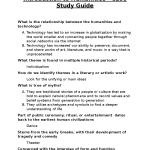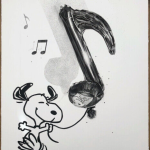Renowned musician and composer Yosvany Terry stands at the intersection of music and cultural identity, drawing from his deep Afro-Cuban roots to explore the rich tapestry of African diaspora jazz. His recent research journey in Benin and Cuba has allowed Terry to uncover the persistent influence of West African musical traditions on contemporary genres, strengthening the bond between these hemispheres. As the director of the Harvard Jazz Program, he passionately integrates these ancestral sounds into his teaching, enriching the educational landscape for aspiring musicians. Terry’s commitment not only to preserving Afro-Cuban music but also to disseminating its heritage serves as a profound testament to the artistry born from the African diaspora. With his performance “Imaginary Dialogues: Dahomey” looming in the spotlight, audiences can anticipate a captivating blend of tradition and innovation that underscores his musical vision.
Yosvany Terry, a pivotal figure in the realm of music education, particularly within the jazz genre at Harvard, illuminates the interconnectedness of various musical traditions. By delving into African heritage and its subsequent evolution across continents, Terry brings awareness to how these influences shape modern musical expressions. His efforts extend beyond mere performance; they also emphasize the importance of cultural preservation and the role of educational initiatives in fostering understanding about Afro-Cuban music and other traditions of the African diaspora. As he prepares for upcoming showcase events, this collaboration of heritage, culture, and contemporary artistry is set to resonate deeply with audiences, providing a bridge to explore the historical significance of West African musical roots.
Yosvany Terry: Bridging Cultures Through Music
Yosvany Terry stands as a monumental figure in the world of music, specifically within the intricate tapestry of Afro-Cuban arts. By blending elements of jazz with Afro-Cuban rhythms, Terry creates a unique sound that embodies the rich cultural heritage of the African diaspora. His work illustrates the vital connections between the musical narratives of Benin and Cuba, captivating audiences with performances that transcend geographical boundaries. Through his extensive research, he has rediscovered how these musical traditions influence contemporary jazz, drawing upon the shared histories of African and Caribbean music.
Terry’s commitment to cultural preservation goes beyond performing; it deeply intertwines with his role as an educator at Harvard. He actively engages students in understanding the vast reaches of Afro-Cuban and African influences in music, helping them connect historical roots with present-day expressions. This educational approach not only enhances the curriculum but ignites passion among students to explore their identities through the prism of music, making his impact felt both in and out of the classroom.
Exploring African Diaspora Jazz
African diaspora jazz encompasses a wide array of musical styles that have emerged from the experiences and histories of African-descendant communities around the globe. At the heart of this musical movement lies the profound influence of West African musical traditions, which have shaped jazz and many other genres. Through his performances and teachings, Yosvany Terry illuminates how these cross-cultural exchanges foster a rich dialogue in music, allowing for innovative expressions that resonate with diverse audiences.
Terry’s exploration of African diaspora jazz is integral to understanding its evolution and how it reflects the complexities of identity, resistance, and resilience. By integrating historical contexts with creative musical practices, he invites both students and listeners to appreciate the depth of the genre. This exploration reveals how jazz is not merely a form of entertainment but a powerful vessel for storytelling and cultural expression, influenced heavily by the cultural narratives of the African diaspora.
Cultural Identity in Afro-Cuban Music
Afro-Cuban music is a testament to the intricate intersections of identity, history, and cultural resilience. Yosvany Terry emphasizes the significance of understanding these connections through his travels and research in West Africa and Cuba. In his work, he showcases how music serves as an anchor for cultural identity, preserved even amidst the transformative waves of colonialism and globalization. The rhythms, melodies, and practices rooted in West African traditions continue to thrive in modern Afro-Cuban music, illustrating a dynamic cultural legacy.
The essence of Afro-Cuban music lies in its ability to tell stories and foster community. Terry’s involvement in this genre allows listeners to engage with its historical contexts while appreciating its contemporary manifestations. By performing works that echo traditional forms while incorporating modern influences, he highlights the ongoing evolution of Afro-Cuban music as an embodiment of cultural identity and pride for those who embrace it.
Yosvany Terry’s Innovative Research Initiatives
Yosvany Terry’s research initiatives reflect a deep commitment to innovative scholarship and the preservation of musical traditions. By venturing to rural areas in Benin, he engages directly with practitioners who safeguard their heritage through music. This hands-on approach not only enriches Terry’s own compositions but also serves as a foundation for his educational endeavors at Harvard. His goal is to equip students with firsthand knowledge and primary sources that illuminate the historical significance of these musical forms.
Terry’s efforts to document and disseminate these cultural practices signal a broader movement within academia to acknowledge and celebrate diverse musical legacies. Through lectures and collaborative performances, he fosters an environment where students can learn about the interconnectedness of music across cultures and historical periods. This research is not just about the past; it actively shapes contemporary music-making and fosters a lasting understanding of the cultural narratives that define Afro-Cuban and African diaspora jazz.
The Impact of ArtsThursdays at Harvard
ArtsThursdays, an initiative at Harvard, plays a crucial role in raising awareness and appreciation for the arts within the Harvard community and beyond. Yosvany Terry’s involvement in this program manifests in performances that connect his research on African musical traditions with live artistry. By showcasing the creativity and talent of Harvard faculty and students, ArtsThursdays serves as a platform that fosters collaboration across disciplines, inviting audiences to explore the diverse aspects of artistic expression.
The initiative also extends its reach into the community, inviting the public to engage with the cultural and artistic contributions of Harvard faculty. Through events like Terry’s performances, attendees can witness firsthand how music serves as a bridge between different cultures and histories. ArtsThursdays not only elevates the profile of the arts at Harvard but also enriches the cultural fabric of neighboring communities, encouraging new dialogues and collaborations within the arts.
Teaching Methodologies in the Harvard Jazz Program
At the helm of the Harvard Jazz Program, Yosvany Terry embraces innovative teaching methodologies that intertwine practical performance with theoretical knowledge. His approach encourages students to delve deep into the roots of jazz, understanding its journey from West African cultural influences to contemporary expressions. By integrating performance opportunities with discussions about historical significance, students gain a holistic understanding of jazz as a living art form.
Additionally, Terry emphasizes the importance of travel in the learning process. Trips to Cuba and the Dominican Republic provide students with immersive experiences, allowing them to interact directly with local musicians and educators. This hands-on approach cultivates a real appreciation for the music and its cultural backdrop, enriching their educational journey and inspiring lifelong engagement with the arts.
Documenting Musical Heritage: A New Documentary by Terry
Yosvany Terry’s upcoming documentary promises to be a significant contribution to the discourse on musical heritage, connecting the historical legacy of the Kingdom of Dahomey with modern-day jazz. The film captures the essence of his travels in Benin, where he engages with local musicians whose traditions inform contemporary practices. By utilizing documentary filmmaking, Terry aims to make these cultural narratives accessible to a wider audience, highlighting the profound connections between music, identity, and history.
The documentary serves not just as an archival project but also as a means of empowering communities whose stories often go untold. By documenting the rich tapestry of musical practices in Benin, Terry reaffirms the importance of these traditions in shaping modern music. The film will likely provide insight into the artistic process, illustrating how the past is intricately woven into the fabric of present-day jazz and Afro-Cuban music.
Future Directions for Arts and Culture at Harvard
As Yosvany Terry envisions the future of arts and culture at Harvard, he highlights the need for continued evolution and expansion of musical offerings within the curriculum. With a focus on diversity and inclusion, Terry advocates for the inclusion of underrepresented musical traditions, allowing for a broader understanding of the global cultural landscape. His experience over the past decade has shown significant strides in enhancing the music department’s offerings, but he stresses that there is still much work to be done.
Terry’s vision includes fostering collaborations with various departments and inviting artists from diverse backgrounds to enrich the learning environment. By doing so, he hopes to cultivate a robust arts presence on campus that engages students and the community in meaningful ways. These initiatives will ensure that the arts continue to flourish at Harvard, establishing a legacy of creativity, cultural understanding, and innovation.
Understanding the Influence of West African Traditions
West African musical traditions form an essential cornerstone of many genres, including jazz and Afro-Cuban music. Yosvany Terry’s extensive research elucidates the profound impact these traditions have had on the development of modern music. By blending traditional African rhythms with contemporary styles, musicians like Terry honor their heritage while contributing to the ongoing evolution of cultural expression.
Terry’s commitment to exploring and teaching these musical forms highlights the importance of recognizing the interconnectedness of global music traditions. Through performances and educational programs, he seeks to instill an appreciation for the rich tapestries woven by West African artists, ensuring that their contributions remain a vital part of the larger conversation about music and identity in today’s world.
Frequently Asked Questions
What is Yosvany Terry’s contribution to Afro-Cuban music?
Yosvany Terry is a prominent figure in Afro-Cuban music, blending traditional Cuban rhythms with contemporary jazz influences. Through his research and performances, he highlights the deep connections between Afro-Cuban music and West African musical traditions, showcasing their significance in shaping cultural identities.
How does Yosvany Terry incorporate African diaspora jazz in his works?
Yosvany Terry incorporates African diaspora jazz by exploring its roots in his compositions and performances. His research involves understanding the historical context of jazz’s emergence from African musical traditions, which he shares with students at Harvard, enriching their knowledge of this genre’s cultural significance.
What is the focus of Yosvany Terry’s research on West African musical traditions?
Yosvany Terry’s research on West African musical traditions focuses on how these rich musical heritages influence modern jazz and Afro-Cuban music. By connecting with musicians in Benin and Cuba, he examines the preservation of these traditions and their impact on identity and cultural heritage.
What role does Yosvany Terry play in the Harvard jazz program?
As the director of the Harvard Jazz Ensemble, Yosvany Terry plays a crucial role in expanding the program’s curriculum to include diverse musical traditions such as Afro-Latin jazz. He facilitates collaborations with acclaimed artists, providing students unique experiences that foster their growth as musicians and cultural advocates.
How does Yosvany Terry connect his performances to his academic research?
Yosvany Terry connects his performances to his academic research by using material from his studies in Benin and Cuba. His concerts, like the upcoming ‘Imaginary Dialogues: Dahomey,’ reflect the themes and cultural narratives he explores in his research, demonstrating the practical applications of his findings in the musical realm.
In what ways does Yosvany Terry’s teaching enhance students’ understanding of jazz?
Yosvany Terry enhances students’ understanding of jazz by providing a rich curriculum that integrates historical context, cultural studies, and practical performance. He emphasizes the importance of understanding the African diaspora’s influence on jazz, helping students appreciate the genre’s complexities and its roots in Afro-Cuban music.
What are Yosvany Terry’s aspirations for the arts at Harvard in the next decade?
Yosvany Terry aspires to continue expanding the arts at Harvard by diversifying the curriculum to include more global musical traditions. He aims to foster innovative collaborations across disciplines, ensuring the arts remain vibrant and accessible while advocating for the importance of cultural heritage in education.
How does Yosvany Terry plan to share his findings with students at Harvard?
Yosvany Terry plans to share his findings with students by incorporating them into his teaching and enabling direct engagement with primary source materials from his research in Benin and Cuba. This approach helps students understand the significance of Afro-Cuban music and its historical roots in the African diaspora.
What is the significance of Yosvany Terry’s upcoming performance on May 1?
The significance of Yosvany Terry’s performance on May 1 lies in its direct connection to his research findings, showcasing how musical traditions from West Africa influence contemporary Afro-Cuban compositions. This event highlights the historical and cultural dialogues between these musical genres, making it a vital part of the Harvard ArtsThursdays initiative.
Why is Yosvany Terry passionate about collaborating across different artistic disciplines?
Yosvany Terry is passionate about collaborating across different artistic disciplines because he believes it broadens perspectives and fosters innovation. By partnering with artists and educators from various fields, he enhances creativity and encourages a deeper understanding of how arts and culture intersect.
| Key Points | ||
|---|---|---|
| Research Focus | Exploration of musical traditions from Benin to Cuba and the African diaspora’s impact on modern jazz. | Engagement with musicians to understand cultural heritage and preservation of traditions. |
| Educational Integration | Bringing research findings into the classroom for students to explore cultural roots of jazz and Caribbean music. | Emphasizing the importance of cross-departmental collaboration in arts education. |
| Artist’s Vision | Creating new compositions influenced by his research, including an opera on historical figures from Cuba. | Documentary project linking historical traditions to modern jazz. |
| Community Impact | ArtsThursdays initiative raises visibility and promotes collaboration in arts on campus and beyond. | Offers unique opportunities for interaction between students, artists, and the community. |
| Future Aspirations | Continued growth and expansion of diverse musical offerings in the curriculum. | Aiming for a vibrant, inclusive arts presence at Harvard over the next decade. |
Summary
Yosvany Terry’s journey showcases the intricate connections between diverse musical traditions and their profound impact on cultural identity. His research not only highlights the significance of preserving historical art forms but also emphasizes the role of education in fostering a deeper understanding of these traditions. As Terry continues to engage his students and the community through performances and collaborations, he is paving a path for a richer appreciation of the arts that is rooted in history and innovation.









